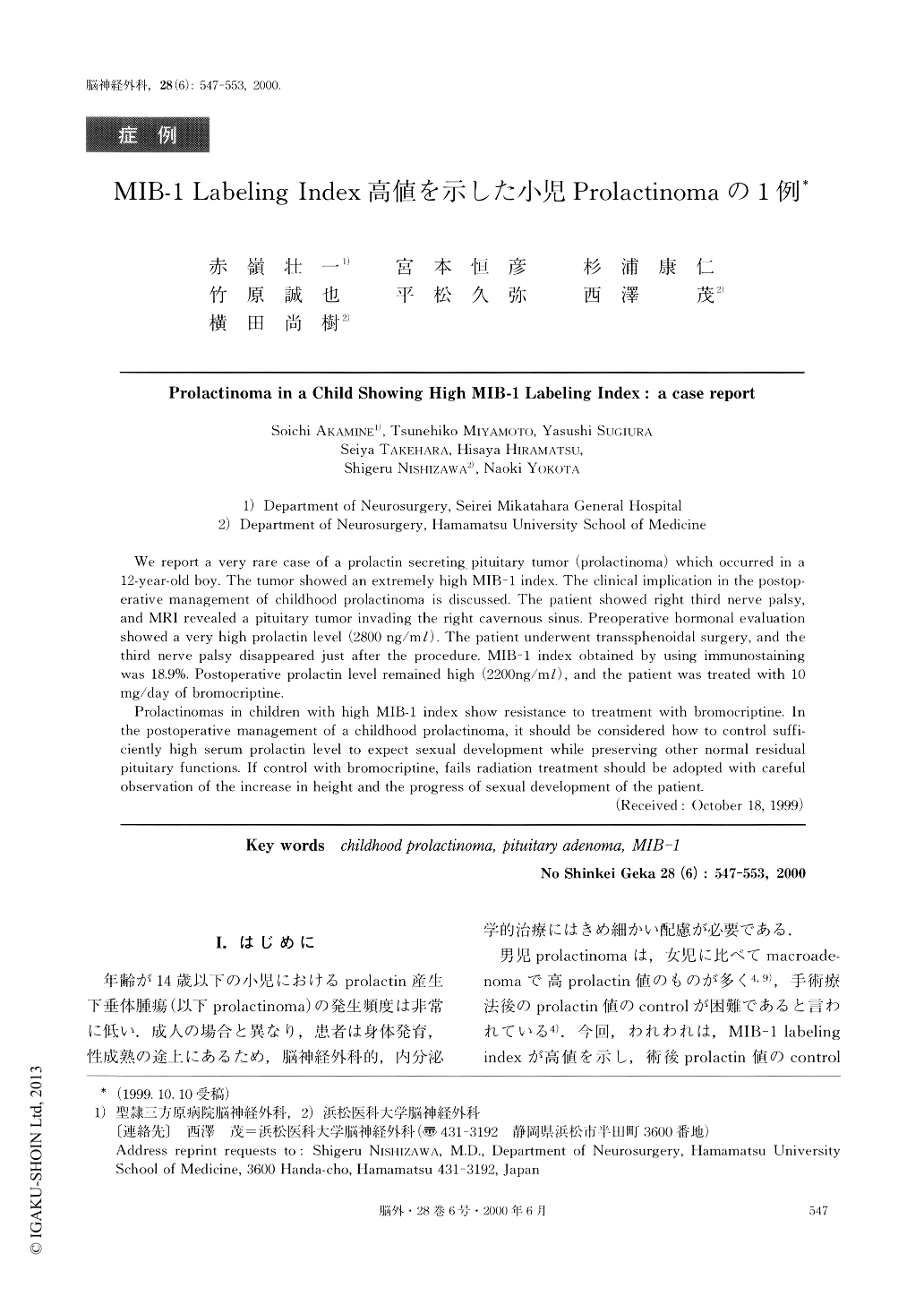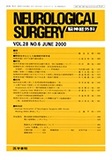Japanese
English
- 有料閲覧
- Abstract 文献概要
- 1ページ目 Look Inside
I.はじめに
年齢が14歳以下の小児におけるprolactin産生下垂体腫瘍(以下prolactinoma)の発生頻度は非常に低い.成人の場合と異なり,患者は身体発育,性成熟の途上にあるため,脳神経外科的,内分泌学的治療にはきめ細かい配慮が必要である.
男児prolactinomaは,女児に比べてmacroade-nomaで高prolactin値のものが多く4,9),手術療法後のprolactin値のcontrolが困難であると言われている4).今回,われわれは,MIB−1 labelingindexが高値を示し,術後prolactin値のcontrolが困難と予想された男児prolactinomaの1例を経験し,小児prolactinomaの術後管理の特殊性につき,文献的考察を踏まえて報告する.
We report a very rare case of a prolactin secreting, pituitary tumor (prolactinoma) which occurred in a 12-year-old boy. The tumor showed an extremely high MIB-1 index. The clinical implication in the postop-erative management of childhood prolactinoma is discussed. The patient showed right third nerve palsy, and MRI revealed a pituitary tumor invading the right cavernous sinus. Preoperative hormonal evaluation showed a very high prolactin level (2800ng/ml). The patient underwent transsphenoidal surgery, and the third nerve palsy disappeared just after the procedure. MIB-1 index obtained by using immunostaining was 18.9%. Postoperative prolactin level remained high (2200ng/ml), and the patient was treated with 10 mg/day of bromocriptine.
Prolactinomas in children with high MIB-1 index show resistance to treatment with bromocriptine. In the postoperative management of a childhood prolactinoma, it should be considered how to control suffi-ciently high serum prolactin level to expect sexual development while preserving other normal residual pituitary functions. If control with bromocriptine, fails radiation treatment should be adopted with careful observation of the increase in height and the progress of sexual development of the patient.

Copyright © 2000, Igaku-Shoin Ltd. All rights reserved.


